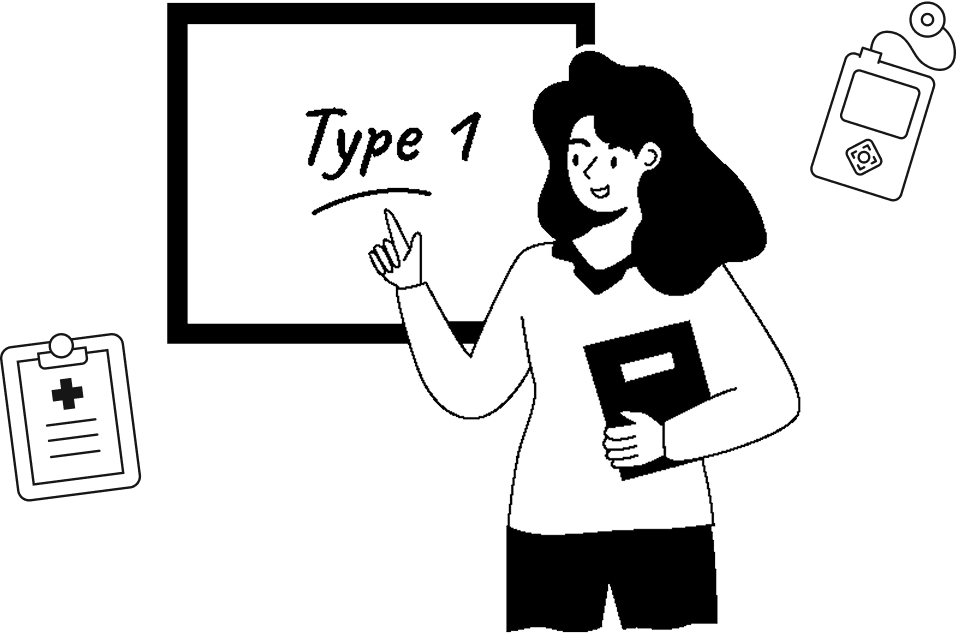Until recently, insulin administration was an exclusion criteria for donating blood, meaning that people with type 1 diabetes (T1D) weren’t allowed to donate to blood banks. In March 2021, thanks to Diabetes Canada’s advocacy work, this restriction was lifted for all Canadian provinces except Quebec. Now, more than two and a half years later, people with T1D in Quebec can also donate blood.
Quebec joins the ranks
Héma-Québec, who manages blood donations in Quebec, was authorized by Health Canada to accept blood donations from people with T1D, provided they meet certain conditions such as good blood sugar management and no diabetes-related complications.
The reason for their previous exclusion was linked to their daily use of needles, which is associated with the risk of transmitting a blood-borne disease to the recipient. However, after careful analysis of evidence, this risk has been found to be inaccurate. From now on, Héma-Québec will therefore be following the same eligibility criteria as the other provinces, under the helm of Canadian Blood Services.
Canada-wide mad cow disease restrictions lifted
Another restriction that prevented Canadians, including people with T1D, from donating blood has been lifted, namely the exclusion criteria linked to the potential exposure to variant Creutzfeld-Jacob disease, which dated back to 1980. This rare, degenerative and fatal brain disease develops following the consumption of beef infected with “mad cow disease.” This criterion applied not only to people who had travelled to, lived in or received a transfusion in France, the UK, Western Europe and Saudi Arabia from 1980 onwards, but also to people with T1D. Up until the early 1980s, the most widely used type of insulin was animal insulin (taken from pigs or cattle). Manufacturers stopped producing animal insulin only towards the end of the 1990s. Even though most people with T1D in Canada have used biosynthetic insulin ever since, the exclusion criterion had remained in Quebec as a precautionary measure while Canadian Blood Services relaxed some criteria in 2022.
Today, experts believe that the risk of transmitting variant Creutzfeld-Jacob disease through blood transfusion is negligible unless you or a family member have been diagnosed with the disease.
Criteria for people living with T1D
To be eligible to donate blood, people with T1D in Canada must meet the following criteria:
- They haven’t experienced a hypoglycemic or hyperglycemic episode requiring the assistance of another person or hospitalization in the last three months. According to Héma-Québec, these episodes indicate a greater risk of poor blood sugar management and, therefore, of diabetes-related complications. Patients who experience severe hypoglycemic or hyperglycemic episodes are predisposed to adverse effects associated with donating blood (e.g., weakness, nausea, fainting).
- They don’t have any ulcers on their feet or legs. According to Héma-Québec, foot and leg ulcers can increase the risk of bacteremia (bacteria in the bloodstream), which can be harmful to recipients with weakened immune systems.
- They don’t experience repeated dizziness or vertigo when standing. According to Héma-Québec, this complication can increase the risk of adverse effects associated with donating blood. People who frequently experience dizziness and vertigo should ask their doctor to fill a form about the risks associated with donating blood, both for them and the recipients.
Héma-Québec and Canadian Blood Services ask donors living with T1D to eat within two hours of giving blood. This is to avoid a potential hypoglycemic episode that could be mistaken for an adverse effect of donating blood.
For more information on the relaxed blood donation eligibility criteria in Quebec, visit the Héma-Québec website.
For more information on the relaxed blood donation eligibility criteria in other Canadian provinces, visit the Canadian Blood Services website.
Written by: Nathalie Kinnard, scientific writer and research assistant
Reviewed by:
- Sarah Haag, RN. BSc.






